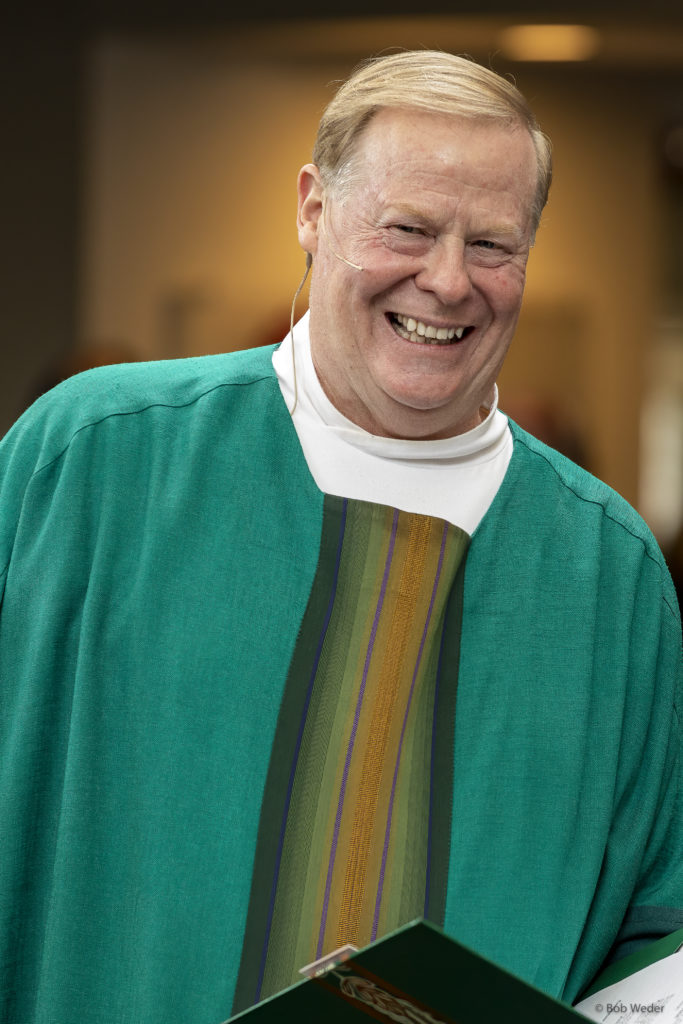
Scripture is the inspired word of God. It is the library containing books, containing stories, containing several literary forms of the written word that have moved our hearts and souls for years, and many that we may not even understand. One of the best images for the word of God is given to us in scripture in the Parable of the Sower from Matthew 13:1-23, which we hear proclaimed at Mass this weekend. Jesus compares God’s word as seed thrown by a sower, landing in various forms of soil with four different levels of fruitfulness.
Our first reading from Isaiah 55:10-11 sets the tone and speaks of God’s word as snow and rain coming down from heaven, watering the earth and making it fruitful.
On one level we might not need anything else than these two images to appreciate this story of God. But so many have contemplated and prayed with this story, written through the centuries by various authors to varying audiences with different points to emphasize and tell a lot, but ultimately only part, of the magnificence that is God and the incarnate part of God that is Jesus Christ.
The two scripture readings that we hear this weekend can inspire us to learn more about scripture, and I would like to suggest a few resources to help us do just that. Particularly as Catholics, we acknowledge that there are many different approaches to scripture and countless ways to experience it, so may I suggest familiarizing yourself (or further studying) the following:
First of all, the book/library itself. The New American edition of the bible contains a thorough introduction of the basis of scripture in our faith and a solid background for why we believe scripture is so important and its fundamental role in God’s revelation and in the life of the church. This introduction is a brief example of the extensive study of scripture done by Catholics and the Catholic Church, and points out that all significant beliefs and rituals of our church are rooted in scripture. Most Catholics don’t know that and certainly non-Catholics often hold that we don’t know or embrace the bible; and most Catholics can’t explain this when interrogated or questioned by non-Catholics.
I always say that we Catholics know scripture in a different way. We don’t have chapters and verses memorized, but we know the stories. We may not know exactly where to find a story, but we often can tell it and, more importantly, we know the point or moral. We are not always aware of the scriptural groundings of our teachings and our liturgies. As we read these two passages of scripture this weekend, we have an opportunity to learn about the fundamental role that scripture plays in our faith.
Second, Fr. Kevin O’Brien, S.J., who published the On Faith blog for Mission and Ministry on April 2, 2014 entitled, “Why Catholics see the Bible Differently than Protestants.” In it he points out that for us Catholics, the sacraments, which are biblically rooted, are a path to holiness, distinct but not removed from the reading of scripture. The classic Protestant/Catholic divide is between ritual and scripture. As one of my professors in the seminary said, “At the time of the Reformation, the Catholics took the rituals and the Protestants took the word and the two haven’t come together since.” I really believe that is changing.
Third, “Understanding the Bible” by Mary Elizabeth Sperry, on the Unites States Conference of Catholic Bishops website. In it she points out that today’s Catholic is called to take an intelligent, spiritual approach to the bible. I simply remind you not to be intimidated by others who quiz you about scripture or ask you to point out where certain aspects of our faith are located in the bible. With some simple research you may find out scriptural answers to such inquiries, but as Catholics we believe that scripture is not the sole source of all truths. Some come from the Church’s wisdom in working in collaboration with the evolving world.
Last but certainly not least, Fr. James Martin, S.J. wrote an article that appeared in America Magazine in the December 5, 2015 edition entitled, “How Does a Catholic Read the Bible?” Please take time to read the entire article. In it he quotes another Jesuit, Daniel J. Harrington, who taught Martin at Boston College. Harrington says, “Christianity is the religion of God understood and experienced as Father, Son and Holy Spirit. The Bible, or Holy Scripture, the book, both created and was created by the Church.” I find that statement invites a lot of reflection—just like scripture itself.
